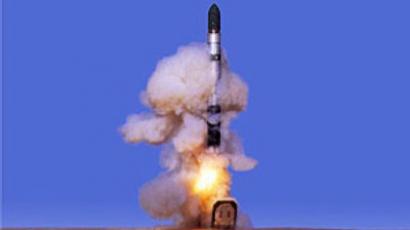Russia to broaden nuclear strike options
Russia’s new military doctrine will put more emphasis on nuclear capabilities. Moscow will be able to use nukes in small-scale conflicts and launch pre-emptive nuclear strikes.
The news comes from Nikolay Patrushev, the secretary of the Russian Security Council. In an interview with the Russian newspaper Izvestia, he said that the new document, which is now prepared to be signed into law, will have several revisions from the current version adopted in 2000.
“The current doctrine is a transitional document for the end of the 20th century,” he said. “Analysis of the strategic military situation in the world and the trends we’ll see until 2020 suggests a shift from large-scale conflicts to local wars and armed conflicts.”
Patrushev announced that Russia will see nuclear weapons as a legitimate means of war in small-scale conflicts.
“We have corrected the conditions for use of nuclear weapons to resist aggression with conventional forces not only in large-scale wars, but also in regional or even a local one,” he said.
“There is also a multiple-options provision for use of nuclear weapons depending on the situation and intentions of the potential enemy,” he added. “In a situation critical for national security, we don’t exclude a preventive nuclear strike at the aggressor.”
Russia’s NATO envoy, Dmitry Rogozin, said that the new doctrine is based on an analysis of future threats to Russia
“The threat of a large-scale intercontinental war is no longer present,” he said. “Russia’s main threat is now coming from territorial and local conflict. So the country is developing a compact, mobile force with state-of-the-art flexible nuclear weaponry. This is similar to the path the French took under Charles de Gaulle.”
The announcement of the doctrine came during US Secretary of State Hillary Clinton's visit to Moscow, with nuclear non-proliferation being one of the top issues on the agenda. Clinton claims that US military doctrine does not allow the preventive use of nukes. But analysts say that over the past decade, the US has demonstrated the exact opposite.
“The United States was ready to use nuclear weapons against Iraq in 2003, and then against Iran in 2008,” said Konstantin Sivkov, the vice president of Geopolitical Science Academy. “This was clearly demonstrated through statements of high-profile military and political officials. So, saying the U.S doctrine does not directly include the use of preventive nuclear strikes is not correct.”
Russia’s revised military doctrine will be submitted to the president by the end of this year. If adopted, it will be a strong change from the military doctrine now in force. The current version allows for the use of nuclear weapons in a response to an attack with weapons of mass destruction, or a large-scale conventional aggression.
Read also: International Terrorism Suffers from World Crisis Too













